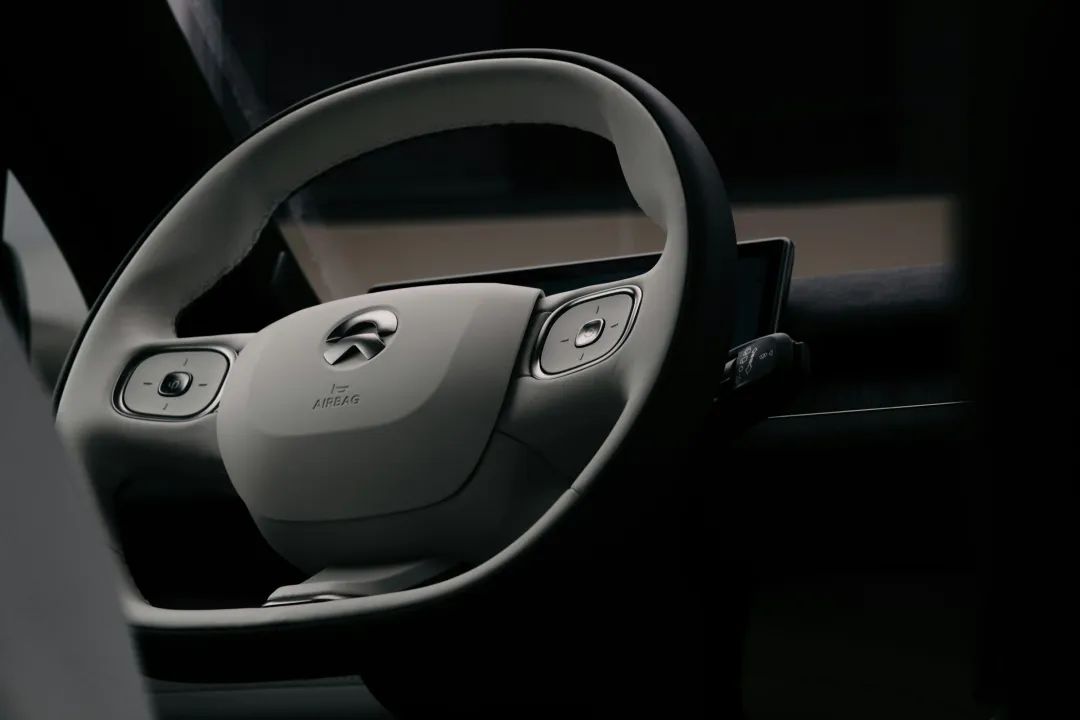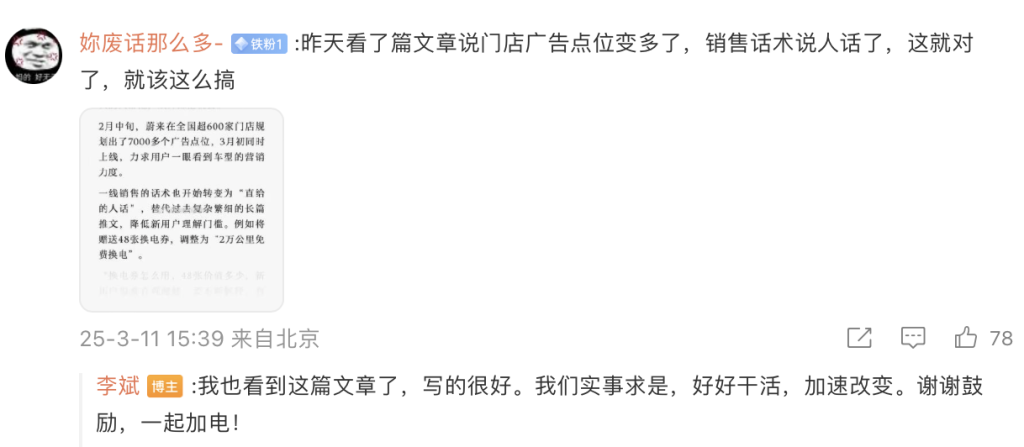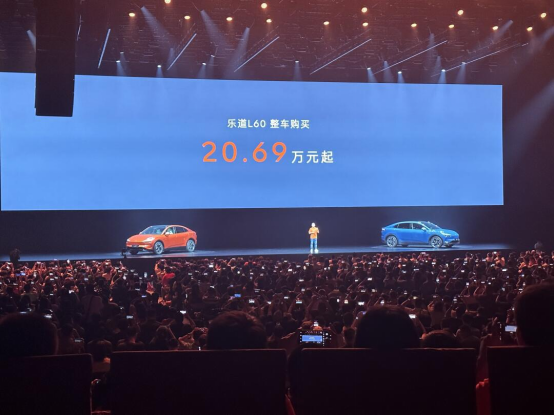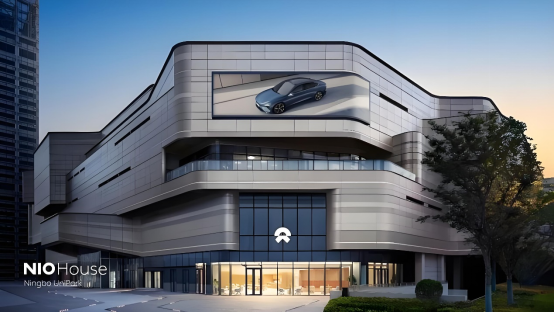Li Bin, Listen to Advice Once Again
![]() 03/20 2025
03/20 2025
![]() 592
592

"Now the whole internet is teaching me how to be a CEO, but I've been making money since I started my business in college. It's not like I've never made money before."
Cover Source: Unsplash"
"Now the whole internet is teaching me how to be a CEO, but I've been making money since I started my business in college. It's not like I've never made money before."
Over the past two years, the topic of "teaching Li Bin how to be a CEO" has become an internet meme more than once. However, in Li Bin's own view, most of the outside ridicule stems from dissatisfaction with NIO's current situation. Many automotive companies have also struggled for years before achieving profitability, and NIO also needs time to see its value.
In simple terms, in the past, Li Bin seemed to always "listen to advice" but failed to make substantive changes in a timely manner. But this time, things may be different.
At the end of February, a departing NIO employee named "Tiny Snail" posted a long article on NIO's internal forum, urging the company to shift from being idealistic to being pragmatic, concentrating resources and facing reality.
Soon after, Li Bin responded in the comments section with his real name: "Thank you for everyone's suggestions. Enhancing the business awareness of all employees starts with me." He then pushed the article to all employees via Feishu.
Looking back over the past two years, NIO has experienced layoffs and structural adjustments, and has struggled to emerge from rumors of bankruptcy. After several struggles, NIO's changes may only truly begin after Li Bin "listens to advice".
1
Li Bin is no longer "pretending"
In fact, this is not the first time netizens have given Li Bin advice.
In 2023, there were rumors of NIO's collapse in the market. In November of that year, NIO also initiated a wave of layoffs. Li Bin issued an internal letter stating that "(layoffs) are a difficult decision that has to be made in the face of fierce market competition."
However, in response to netizens' advice for Li Bin to spend money more prudently, NIO President Qin Lihong responded by saying that building NIO Houses and providing battery swapping services were not distractions from the main business. Chinese automakers aiming to build high-end brands need to try more things and may incur some costs in the process.
At the end of last year, a NIO fan posted "Does NIO Have a Future? Six Soul-Searching Questions from a Diehard Fan" in the NIO community. He pointed out that "long-termism" is the driving force behind users' appreciation of NIO, but the reality is not an ideal world with infinite funds and time, and he was worried that NIO would eventually die.
Subsequently, Li Bin also responded, stating that NIO indeed has many areas that need improvement, and they will continue to work hard. But what the outside world cares more about is, will Li Bin really "listen to advice"?
Over the past two years, some netizens have likened Li Bin to "someone pretending to be asleep," as if everyone can see NIO's problems except Li Bin himself.
Li Xiang, the founder of Li Auto, made the following comment about Li Bin in an interview: "I think Li Bin's characteristic is that he wants to build a grand vision and verify it through corporate operations. These characteristics are related to his major and life experiences, and he can consistently do these things with his words and actions. His team truly believes in these things."
Li Xiang's evaluation accurately points out Li Bin's personal traits: he is someone who can persist in his beliefs. Admittedly, this is a wonderful personality trait, but in different scenarios, especially in the rapidly changing business world, staying the same is not necessarily a good thing.
Once upon a time, NIO's "service label" won the company reputation and traffic, shaping a high-end mindset that distinguished it from other automakers and allowing more people to learn about NIO. From the perspective of helping the brand stand out, NIO's brand strategy was successful.
However, as competition in the automotive industry becomes increasingly fierce, and other automakers are engaging in intense internal competition, NIO's reliance solely on the "service label" is clearly no longer sufficient to win.
At this point, NIO resembles a student who excels in one subject but lags in others, with extremely long strengths and extremely short weaknesses. But in a battle of offense and defense, once the weakness is breached by the opponent, the strength will naturally be difficult to survive alone.
This is why netizens are advising Li Bin, hoping that he can spend money more prudently and prioritize funds for the membership system on projects where return on investment can be quickly seen, such as product development and technological innovation.

Fortunately, Li Bin has finally decided to "stop pretending to be asleep".
Recently, according to 36Kr reports, NIO is promoting organizational changes across the company, implementing an operating mechanism called CBU, which divides all operating work into multiple non-overlapping "basic operating units." Each unit must establish a clear ROI and performance reward and punishment system.
In addition, Li Bin is more deeply involved in supply chain procurement projects and directly participates in price negotiations for core components, including batteries. An internal management source from NIO revealed that Li Bin requires the supply chain to scrutinize costs down to the fourth decimal place.
This means that NIO has completely shifted from the past budget system to an operating target system, requiring that "every penny invested must have a return." Even NIO's mobile phone business, which Li Bin has always been very insistent on, began to drastically streamline its structure last year.
Li Bin has repeatedly emphasized the severity of the situation to the team, stating that "we must change, or we won't survive." It is reported that NIO also sent a team to Luxshare Precision last year to learn cost management, with the clear goal of doing more with fewer people.
2
NIO "Replicates" XPeng
From the perspective of the capital market, Li Bin personally taking charge of supply chain management is indeed much more effective than "shouting slogans." After the news broke, NIO's share price rose by nearly 10% in a single day.
After all, the management model of "taking a knife to the supply chain" has already been personally verified by XPeng Chairman He Xiaopeng. In an interview in February this year, He Xiaopeng shared his insights on supply chain management, stating that "supply chains must not only be personally managed but also understood."
He Xiaopeng revealed that before the joining of Wang Fengying, the former president of Great Wall Motors, there was systematic information asymmetry within XPeng, such as long-term overstated costs in steel procurement, but "employees could use 100 ways to prove that the problem did not exist."
However, what NIO needs to learn from XPeng is probably not just supply chain management.
In September 2024, NIO's first sub-brand, Ledo L60, was officially launched, not long after XPeng launched the MONA M03.
The new cars launched by XPeng and NIO both aim to break the original pricing system and increase sales through low- to mid-end models. XPeng's MONA M03 is known as "the first car for young people," while Ledo L60 targets family users, hoping to focus on the mainstream family user group.
However, since its launch at the end of August last year, XPeng's MONA M03 has racked up 60,000 orders. In comparison, the sales of Ledo L60 have been somewhat dismal.
In December last year, Ledo L60 delivered 10,528 units, barely meeting the sales target. However, since the beginning of this year, Ledo's sales have started to plummet, with 5,912 units delivered in January and only 4,049 units in February.
Before this, Ledo President Ai Tiecheng had issued a military order, stating that the goal for Ledo L60 was to reach 15,000 units in January and February 2025 and exceed 20,000 units in March. However, at present, there is a large gap between actual sales and sales targets.
Many people believe that the lack of price competitiveness is an important reason for Ledo's failure. The final pricing of Ledo L60 starts at 206,900 yuan. If the battery rental option is chosen, the price can drop to 149,900 yuan, but it is almost pricing at the lowest end of the mid- to high-end market.

This has directly led to many consumers not buying into it. Firstly, if the battery rental option is chosen, although the car price is low, considering the "hidden costs" such as battery rental fees and battery swap fees, the total price of the car will increase further.
Moreover, to distinguish the main brand from the Ledo brand, NIO has adopted a "one-size-fits-all" approach to battery swapping. NIO owners can use over 3,000 NIO swap stations, while Ledo can only use 1,000 of them.
In addition, Ledo owners cannot enjoy all the services of NIO owners, including NIO Houses. For Ledo owners, becoming "second-class citizens" after buying a car is not worth it; they might as well switch to other brands to avoid feeling "inferior."
Secondly, if the entire car is purchased, the pricing of Ledo L60 is not "extreme" enough, and consumers have many other options in this price range, including the Model Y and Xiaomi SU7.
,"They can even choose NIO's main brand. According to industry insiders, the user profiles of these two models overlap significantly, far exceeding the 5% overlap ratio mentioned by Ai Tiecheng.
Overall, Ledo L60 is not "sticky enough" in pricing and too "distinct" in user benefits, which fails to please NIO fans and indirectly pushes potential users interested in NIO services away. Therefore, it is not surprising that Ledo L60 has not "exploded" in sales.
NIO's "membership system," consisting of battery swapping facilities, membership spaces, etc., has always been the core value of the NIO brand. However, the "membership system" requires long-term heavy asset investments. Without the support of NIO's main brand, the low- to mid-end models launched by NIO cannot bear such a huge cost investment.
From another perspective, NIO owners have paid for the "membership system" with real money, and they naturally do not want sub-brand owners to be able to share services. But once the "membership system" is gone, what can Ledo rely on to attract consumers?

3
Profitability is Imminent
This is not only a problem for Ledo but also for NIO, which needs to shift from a "service label" to a "product label," providing service value while also bringing surprises to consumers in terms of products.
In the past, many insiders have criticized NIO's products as "closed-door carmaking." NIO has its own adherence to brand and product, but as NIO's sales scale continues to expand, the preferences of niche groups can no longer represent the likes and needs of a broader audience. NIO needs to "break out" and create a national-level "hit product".
However, unlike "cost reduction" in the supply chain and service system, innovative research and development is a more long-term endeavor involving product design, intelligent driving, battery-electric-drive systems, etc., which will be a huge expense.
But for NIO at the moment, "spending money" is still a headache. From 2016 to the third quarter of 2024, NIO's cumulative losses have reached 96 billion yuan. In the first three quarters of last year, there was still no sign of narrowing in quarterly losses.
Therefore, NIO's top priority is still "profitability." Only by increasing revenue scale can there be more cash flow for technological innovation, including promoting the deployment of swap stations. After all, NIO cannot be separated from the battery swapping model.
Recently, Li Bin updated the profitability target, advancing it from the previously mentioned 2026 to achieving single-quarter profitability in the fourth quarter of 2025. Compared to NIO's previous delays in profitability targets, this shows Li Bin's determination for this reform.
It is worth mentioning that NIO recently received a total of 2.8 billion yuan in capital increases from two companies with state-owned backgrounds. Although this is good news, how long such continuous "blood transfusions" can continue and how much patience the capital market still has are considerations that NIO and Li Bin should have.
For any brand, "long-termism" is a value worth adhering to, but it is definitely not a "fig leaf" for corporate hesitation. Hopefully, this time NIO can truly "awaken," heal itself through drastic measures, and usher in a "rebirth".







